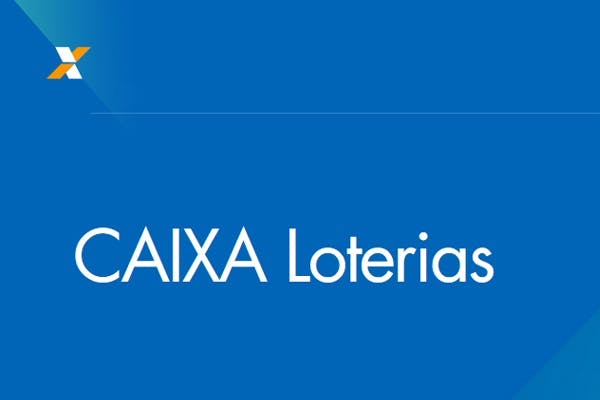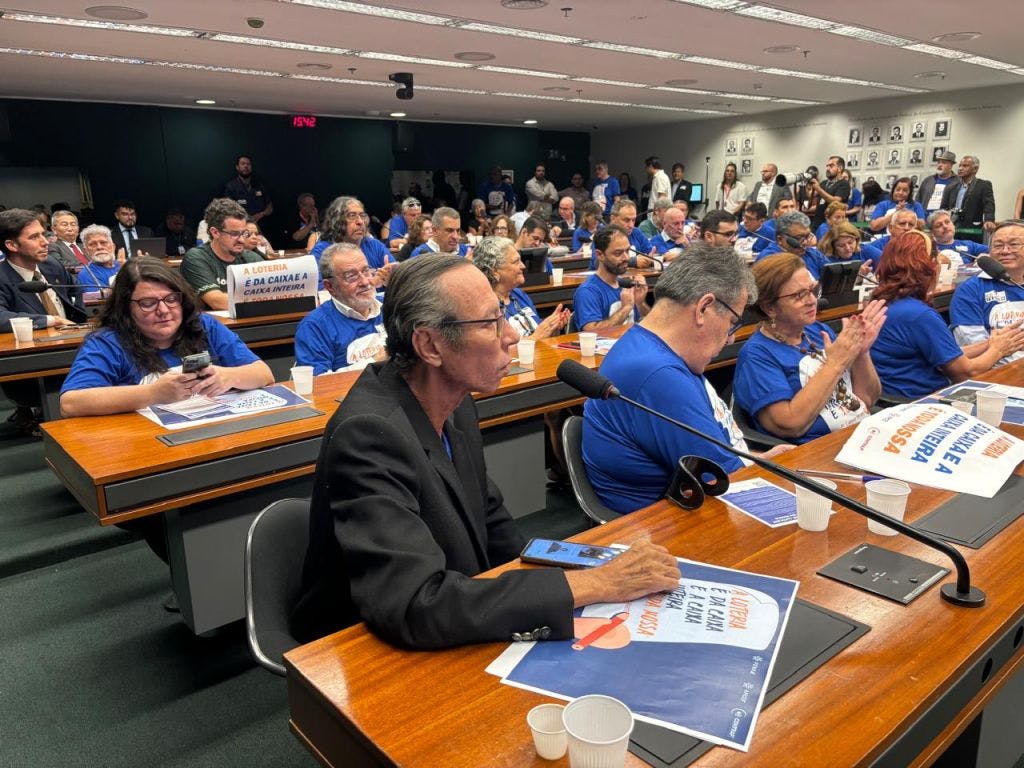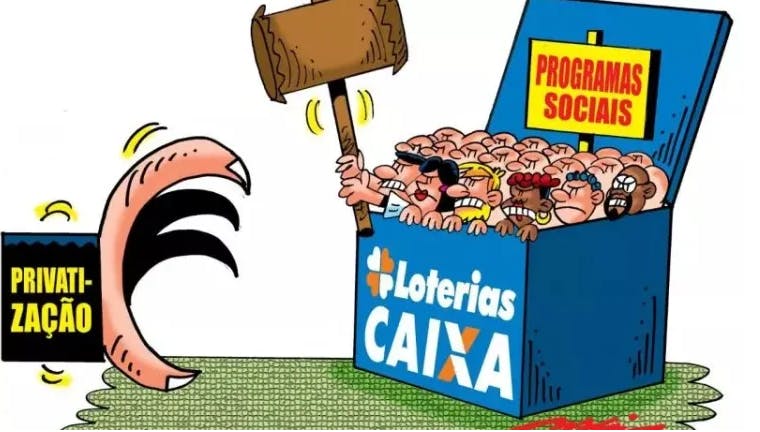Change in lottery management sparks debate about privatization
Approval came amid protests from employees, who fear the measure could pave the way for privatization of the business
The Lottery House
tags:
Loterias Caixa
privatization

Introduction:
The decision by Caixa Econômica Federal to transfer the management of its lotteries to a bank subsidiary has sparked a heated debate about the possibility of privatizing the games. This move, approved by the state-owned bank's board of directors, has elicited strong reactions, especially among bank employees, who have expressed concerns about the potential ramifications of this change. The central point of this debate is the uncertainty surrounding the impacts that transferring the lotteries to a subsidiary could have on the country's social and economic policies.
While Caixa has stated that the transfer would not alter the public nature of the lotteries or compromise their role in funding social projects, bank employees remain skeptical. They argue that this measure could set a precedent for eventual privatization of the business, jeopardizing not only the stability of the financial institution but also the continuity of investments in areas such as education, sports, and security, which are traditionally funded by lottery revenues.
In this context, it becomes essential to carefully analyze the arguments of both sides and understand the possible outcomes of this decision. The debate surrounding the transfer of lotteries to a Caixa subsidiary reflects not only immediate concerns about the future of social policies in Brazil but also broader issues of corporate governance and the role of the state in managing essential services for the population.
1. Caixa Econômica Federal transfers lottery activities to Caixa Loterias subsidiary

The Board of Directors of Caixa Econômica Federal approved the transfer of lottery activities performed by the bank to Caixa Loterias. The company is a wholly-owned subsidiary of Caixa and was established in 2015 for this purpose.
According to Caixa, the change could bring greater profitability to the business. "The migration will provide greater focus and contribute to the goal of modernizing the lottery business, expanding the gaming market, diversifying products, and increasing results," the bank says.
Caixa exclusively operates lottery gaming services, which include brands like Mega-Sena. These services are the Union's exclusive domain by law but have faced competition from online sports betting houses, known as "bets," which have a distinct nature and were regulated by the government last year.
2. Protests

The approval of the change in lottery management occurred despite vigorous protests from bank employee associations. These protests reflect workers' concerns about the potential consequences of the measure, especially regarding the privatization of the lottery business. Although Caixa assured, in a note released recently, that any such move depends on approval from the National Congress, uncertainty persists among employees. They fear that transferring the lotteries to a subsidiary could indeed set precedents for privatization, weakening not only the financial institution but also compromising the continuity of essential services funded by lotteries.
Moreover, lottery outlets play a crucial role in Caixa's service network, serving as essential access points for a variety of banking and social services. With thousands of units spread across the country, lottery outlets represent a significant and accessible presence of Caixa in urban and rural communities. Their importance as an extension of Caixa's banking services is undeniable, further underscoring the relevance of this debate about the future of lotteries.
3. Caixa's Arguments and Employee Concerns

Caixa argues that transferring lottery management to its subsidiary does not affect the government's control over them, as the subsidiary is wholly owned by the state bank. Additionally, it assures that the allocation of resources for social projects will continue to be determined by law. However, bank employees express concerns about the migration of lotteries to a subsidiary, as they believe it could facilitate their privatization. They point out that wholly-owned subsidiaries of state-owned companies can be privatized without the need for approval from the National Congress, as per the Supreme Federal Court's decision. This difference of opinions reflects the tension between the pursuit of efficiency and modernization in lottery management and concerns about preserving the public and social nature of these services.
4. Legal Action by Bank Employees and Arguments Presented

In this scenario, representative entities of bank employees, such as the National Federation of Caixa Econômica Federal Personnel Associations (Fenae) and the National Confederation of Financial Sector Workers (Contraf-CUT), decided to take legal action. They filed a lawsuit in the Labor Court seeking to annul the decision. Their arguments are based on the concern that this change could cause irreparable damage not only to Caixa's employees but also to society as a whole. They argue that this would weaken the financial institution, compromising its ability to fulfill its social role effectively and comprehensively.
Conclusion:

The debate surrounding the change in lottery management reflects deep concerns about the future of social financing policies in Brazil. While the government seeks to modernize lottery management to address market challenges, bank employees warn of the risks of privatization and advocate for maintaining Caixa as an important instrument for promoting social well-being in the country. This discussion goes beyond corporate and technical issues, as it touches on fundamental themes about the state's responsibility in redistributing resources and ensuring essential services to the population. The outcome of this debate will have significant implications not only for Caixa's employees but also for millions of Brazilians who benefit from lottery revenues. At the heart of this controversy lies the search for a balance between economic efficiency, public interest, and social justice, crucial elements for building a fairer and more equitable society.